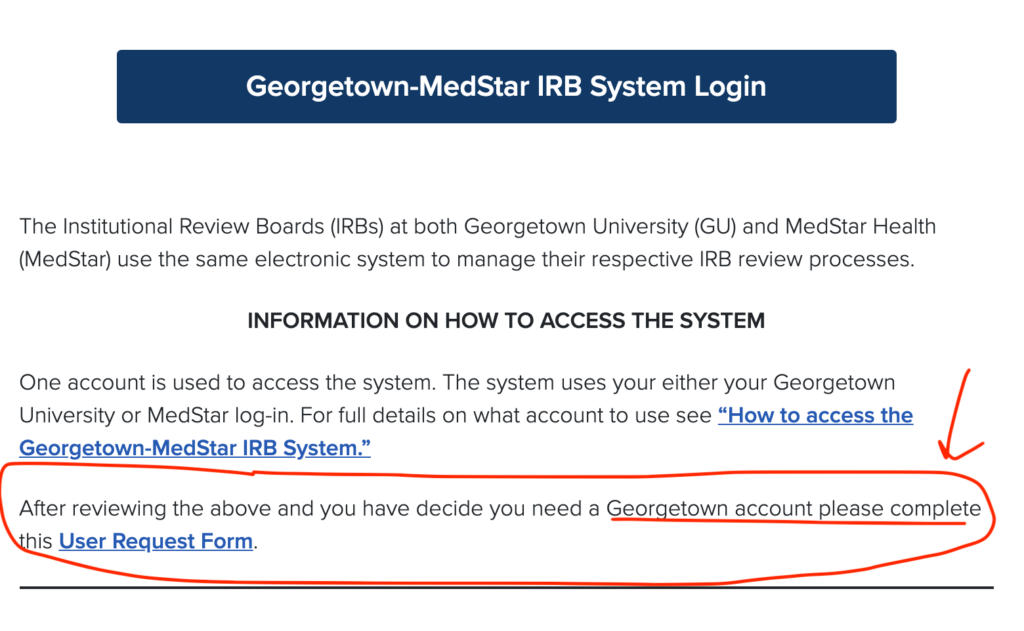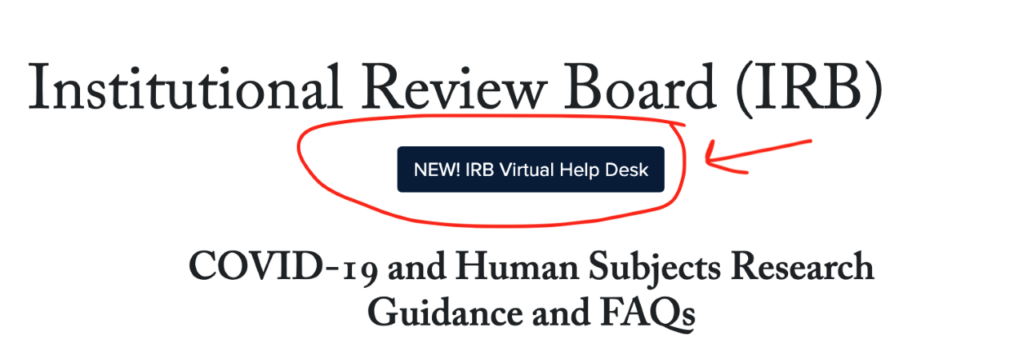Resources
Guidelines on Authorship & Contributionship
Case Report Guidelines for your ISP
Although many of you will participate in more rigorous and hypothesis driven project, some of you may choose to use a case report as your ISP. Please note that just because a patient is interesting to you, it may not be appropriate for your ISP. In order for a Case Report to be eligible as an ISP, it must be appropriate for publication in a peer-reviewed journal. In order to help guide you with the eligibility of your case report, the American College of Physicians (ACP) has developed some guidelines that are on their website.
_____________________________________________________________________________
Georgetown University and Georgetown University School of Medicine Research Survey distribution Policy to be followed
The university has a survey policy that applies to any surveys being delivered to more than 100 Georgetown community -> (students, faculty, staff).
See website for details and the application form/approval process.
University Survey Policy | Office of Assessment and Decision Support | Georgetown University
The GUSoM has an additional policy for surveys of less than 100 people and recruitment for other research studies. If surveying class of M3s and M4s, the university policy applies and the research team needs to apply for approval from with the main university.
Georgetown School of Medicine Survey and Study Recruitment Policy
The School of Medicine (SOM) Survey and Study Recruitment Policy supplements the
University Survey Policy that was approved by the Georgetown University Faculty Senate in
March 2021. The goal of these policies is to balance the requests for research surveys and
participation with respect for students’ time and attention. They aim to reduce survey fatigue,
ensure surveys meet IRB requirements, and prioritize surveys that align with the goals and
benefit with broader interests of the GUSoM.
The University Survey Policy and the GUSoM Survey Policy do NOT apply to surveys conducted
for administrative, educational (e.g. curricular evaluation/feedback), or internal decision-making
purposes.
Survey Approval
- Surveys that involve 100 or more Georgetown students, faculty, and staff must be
submitted to the main campus Office of Assessment and Decision Support (OADS) for
approval (Survey Application Form | Office of Assessment and Decision Support |
Georgetown University).
a. A member of the GUSoM Assessment Office sits on the OADS survey coordinating
group and is involved in the approval process
b. Approval by OADS indicates approval from the GUSoM - Surveys that involve less than 100 students must be submitted directly to the GUSoM
Assessment Office for approval (MedEval@georgetown.edu; SOM Survey Approval
Request Form).
a. The GUSoM Assessment Office may engage student leadership for input in
prioritizing surveys for approval - Survey approval requests need to come from Georgetown University, Georgetown
School of Medicine, or MedStar community member. Surveys from outside institutions need to have a Georgetown or MedStar collaborator or sponsor. Surveys from within the institution will
be prioritized over surveys from outside the institution.
Survey Dissemination
Access to student class listservs is limited to key GUSoM Dean’s Office personnel and student
leadership. Individuals MAY NOT use the listserv to distribute research surveys or recruit
students as subjects for studies without prior approval. - Surveys that have been approved by OADS or GUSoM will be provided to the student
leadership, who will send out the survey requests as part of their weekly notice to the
study body. - Alternatively, OADS may provide a mailing list along with their approval, allowing
direct email communications with students.
Recruitment for Non-Survey Research - Non-survey studies that wish to use the listserv to send recruitment emails to students
must request approval from the SOM Assessment Office.
a. The SOM Assessment Office may engage student leadership for input - If approved, the recruitment notice will be included in the student leaderships weekly
notice.
_____________________________________________________________________________
Information on the Georgetown University Institutional Review Board (IRB)
_____________________________________________________________________________


